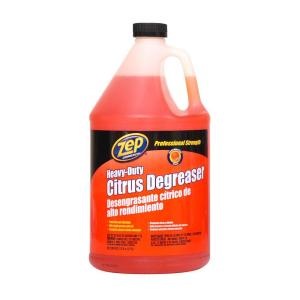Page 1 of 1
Cleaning Gasser engines?
Posted: Apr 15th, '11, 11:54
by Stephan
Gentlemen-
This weekend’s jobs include cleaning the Crusader 454s in Axe.

They’re 1992 vintage carbureted engines that are extremely photogenic- in fact they are covered in grime. The insulation on the engine boxes had disintegrated and now clings to the grease/grime on the engines and fills the crevices.
I bought a couple of gallons of POR-15 marine clean and have a bunch of brushes and sponges. I plan to protect the alternator/coil/distributor/starter. What else should I be concerned about?
Thanks,
Stephan
Posted: Apr 15th, '11, 11:57
by Rawleigh
Cover the Trucharger!! Don't leave the marine clean on too long or it can remove the paint. Great stuff, but don't breath it in an aerosol form (like when you spray it from a pump bottle)! Take off the flame arrester and tape off the carbs.
Posted: Apr 15th, '11, 12:18
by John F.
Aluminum foil is good to wrap around stuff that doesn't need to be watertight but that you want to protect, especially good if you decide to paint/spot paint. Q-tips are great for cleaning all the little tight stuff like on your carbs. Toothbrushes work well to, and rolls of papertowels. I used to clean my motors regularly, and used WD-40 and the above and it worked great. I actually really enjoyed cleaning the motors (always accompanied by Step 8).
Posted: Apr 15th, '11, 12:19
by Harry Babb
Well......the EPA may be slightly offended if i told you how I once cleaned engines......
Long long long time ago when I had a boat that actually ran (that was before I destroyed a perfectly good running Bertram) I cleaned my 454's and about an inch of grime in the bildge.
I used Gunk mixed with kerosene. From there I placed a 55 Gallon Barrel on the aft deck and let the bildge pumps pump into the barrel.....as the barrel fills up it weights down the stern so that the wash water more readily runs to the back of the bildge.
After you finish cleaning your engines I would recommend that you chip and wire brush any and all of the rusted areas that are accessible and apply a Loctite product called "EXTEND" to the rusty areas.
"Extend" treats the remaining rust and helps retard the rust build up underneath the new paint.
From experience I can tell you to pay close attention to the hose ends that carry oil from the transmission to the oil cooler.....mine were heavy with rust and after simply picking at one of them with a screw driver the fitting failed and dumped all of the gear oil in the bildge.......hence the heavy oil build up described at the beginning of this post.
But when they are all cleaned up and painted.......they sure look good and give you a great deal of satisfication.
Good luck
hb
Posted: Apr 15th, '11, 14:29
by Dug
I would start out with a low level cleaner that is far less caustic. I love and swear by Big Orange made by Zep. You can get a rough equivalent at Home Depot. Spray it on, let it sit for a minute and essentially hose it off or wipe it off with a rag. It will clean and degrease like a champ!
And won't kill you! Nor will it remove the paint. We use it here at the plant pretty regularly, and it is very effective.
D
Posted: Apr 15th, '11, 14:38
by Rawleigh
You dilute Marine Clean with hot water. How caustic you want it depends on the mix. I just like my cleaners fairly hot since I am usually dealing with oily farm equipment.
Posted: Apr 18th, '11, 08:35
by Stephan
OK. Big guns for big game... use the orange stuff first. Doug, Is this the stuff you recommend?

Posted: Apr 18th, '11, 17:26
by Dug
Yep, that's the stuff!


